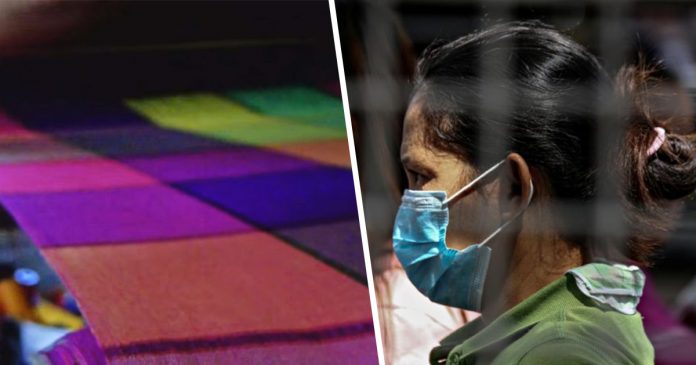
ILOILO City – Facemasks made of hablon fabric woven using locally-produced yarn will soon be made available to the public through a collaboration between the Department of Science and Technology (DOST) Region 6 and the Iloilo Science and Technology University (ISAT-U).
ISAT-U president Dr. Raul F. Muyong said the Regional Yarn Production and Innovation Center (RYPIC) in Miag-ao, Iloilo has “more than enough yarn ready for weaving.”
“We are planning to use the yarn to produce washable facemasks to be distributed to Iloilo. We talk(ed) about it with Director (Rowen) Gelonga and DOST will support financially as well as ISAT- U,” Muyong said.
The RYPIC, funded by DOST’s Philippine Textile Research Institute (PTRI), is housed inside the Miag-ao campus of ISAT-U.
He said they are coordinating with community-based weavers in Miag-ao for the yarn to be woven into textiles.
Muyong added that amid the coronavirus disease 2019 (COVID-19) pandemic, one of their concerns is how to help the local weavers, hence the project, which would also enable weavers to earn extra income.
“ISAT-U has a local partner in Iloilo that produces facemasks. We can also tap seamstresses in Miag-ao to help us produce face masks,” he said.
Yarns produced by the RPYIC are made of 70-percent cotton and 30-percent piña fiber.
Workers of the center temporarily stopped production during the lockdown but Muyong assured of a sufficient supply of yarn.
“Our target is within the month of June we can produce textiles. Gradually, we can have samples of facemasks. I believe DOST will also be helping us in the production of this through financial support,” he said.
In a previous interview, DOST-6 director Gelonga said the conversion of yarn into facemasks has a double purpose.
“It’s not only livelihood and employment opportunities but actually producing PPE (personal protective equipment) to help our citizenry,” he said.
Gelonga noted that the yarn being used is made of 100-percent Iloilo cotton, mostly produced from Leon town.
Currently, Muyong said they could not determine yet the volume of face masks that they would produce.
He added though that the masks would also be sold to offices so the center could earn an income.
Apart from facemasks, Muyong received a letter from PTRI director Celia Elumba asking if they can produce faculty uniform and other textile needs of the university out of the yarn that is being processed at the RYPIC.
“We have plans to set our university as an example. We will be the first to use our products of local fabrics out of our RYPIC facility,” he said. (PNA)





